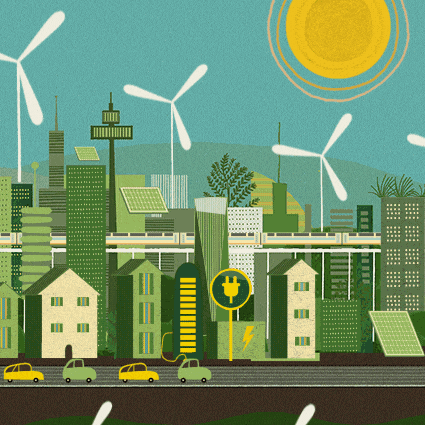
Solar energy is a crucial tool in the fight against climate change. Traditional electricity generation, particularly from fossil fuels like coal, natural gas, and oil, releases greenhouse gases Solar power, on the other hand, produces electricity without emitting these harmful gases, helping to mitigate global warming and reduce air pollution.By replacing fossil fuels with solar power, we can significantly reduce carbon emissions, mitigating climate change.
Solar energy contributes to energy diversification. Relying on a single energy source, like fossil fuels, can make an energy system vulnerable to price fluctuations and supply disruptions. By incorporating solar power into the energy mix, a region can enhance its energy resilience and reduce its exposure to energy market volatility.
Solar energy contributes to energy independence by diversifying the energy sources in a region. Countries that rely on imported fossil fuels can reduce their dependence on foreign energy supplies, increasing their energy security.
The solar industry has created numerous jobs in manufacturing, installation, and maintenance of solar panels.
It can lead to cost savings over time,as it reduces electricity bills.


